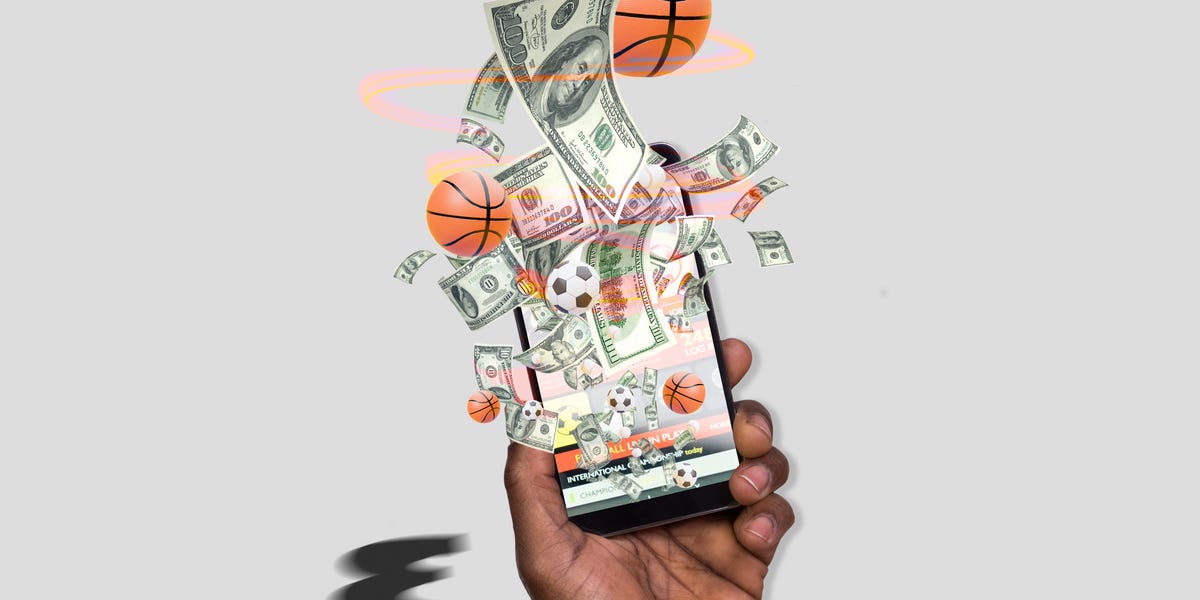The Problem With Legal Gambling That Everyone Seems to be Ignoring

The Predatory Nature of Sports Betting
Evolution of a Craps Enthusiast
In bygone days, the lexicon of street corner craps games captivated me. I loved the sound of dice, the anticipation of each roll, and the camaraderie among the players.
However, as much as I admired these underground games, I never actively participated in them. Concerns about potential losses, witnessing others succumb to reckless gambling, and growing risks cast a shadow over my desire to partake.
The Rise of Corporate Gambling
Today, sports betting has become an inescapable presence in our media landscape, with celebrities like Kevin Hart and LeBron James lending their credibility to the industry. The once-underground activity has now gone mainstream, targeting millions of Americans with alluring promises of easy wins.
But this new era of sports betting is more than just a lucrative business. It's a predatory industry that has found fertile ground in marginalized communities, particularly African Americans.
A Troubling Legacy: States' Rights and Predation
The legalization of sports betting was ushered in by a Supreme Court ruling invoking states' rights. This same legal principle has historically been exploited to justify the perpetration of injustices against Black people and other vulnerable groups.
Like Big Tobacco, Big Gambling has a disturbing history of targeting African American communities. Studies have shown that menthol cigarettes, heavily marketed to Black smokers, have had a disproportionate impact on their health.
Marketing to the Black Diaspora
Big Gambling follows a similar pattern. Through partnerships with celebrities who hold cultural sway over Black audiences, they portray gambling as a sophisticated and glamorous pastime. These campaigns subtly associate it with wealth, success, and a sense of accomplishment.
Self-Regulation: A Half-hearted Attempt
Despite its growing presence, there is no federal agency overseeing Big Gambling. Instead, the industry relies on the American Gaming Association's Responsible Marketing Code, a self-policing measure that has proven to be inadequate.
While the code includes some restrictions on advertising to vulnerable populations, such as college students, it has not been sufficient to prevent marketing campaigns that disproportionately target Black communities.
The Lure of Easy Money for College Students
Big Gambling has made significant inroads on college campuses, offering partnerships and promotions that lure students into wagering their hard-earned money.
This is especially concerning considering the financial challenges faced by many Black college students. Pell Grants, historically intended to support low-income students, have often failed to keep pace with the rising cost of higher education.
The Legacy of Predatory Culture
The targeting of Black communities by Big Gambling fits into a broader pattern of financial exploitation. In many impoverished neighborhoods, music and culture have normalized a reckless attitude towards money.
Words like "C.R.E.A.M." (Cash Rules Everything Around Me) and "Money Ain't a Thang" have shaped a mindset that can unwittingly lead to financial ruin.
Conclusion
The ubiquity of Big Gambling represents a threat to the well-being of vulnerable communities. While those outside these communities may see it as merely harmless entertainment, the reality is that it is an insidious form of predation that undermines financial security and reinforces destructive cultural norms.
As a member of the Black community and as a concerned citizen, I urge lawmakers and policymakers to address the predatory practices of Big Gambling. It is time to hold this industry accountable for its harmful impact on our people.
"It's all fun and games till it's your people suffering." - Mitchell S. Jackson